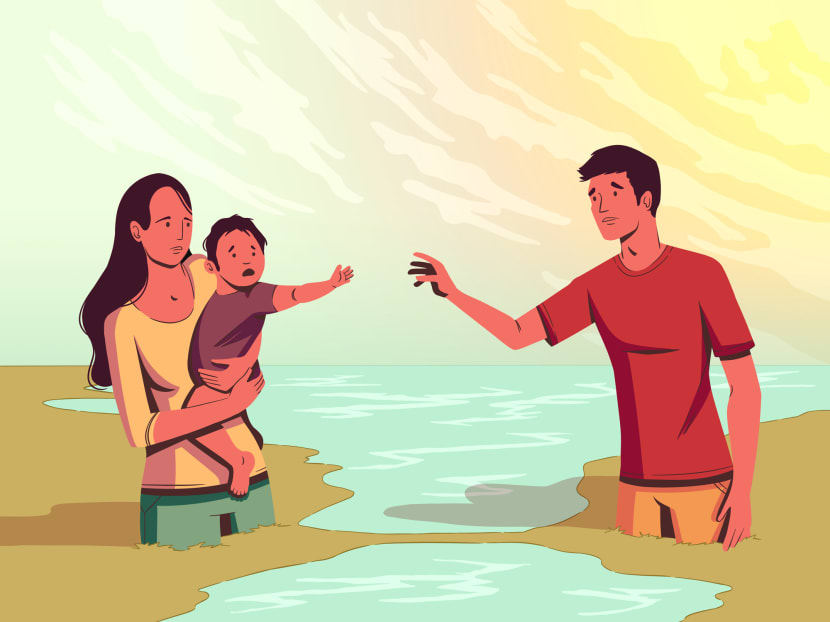The Big Read in short: Malaysians stuck in Singapore long for return home
Each week, TODAY's long-running Big Read series delves into the trends and issues that matter. This week, we look at the plight of Malaysian workers who have been stranded in Singapore since March last year. This is a shortened version of the full feature.
Each week, TODAY's long-running Big Read series delves into the trends and issues that matter. This week, we look at the plight of Malaysian workers who have been stranded in Singapore since March last year. This is a shortened version of the full feature, which can be found here.
- Many Malaysian workers who commute to Singapore daily for work have been stranded in Singapore since March last year
- Border restrictions, quarantine requirements have made it difficult for them to go back home to their families
- Meanwhile, they have to grapple with additional living expenses at an exchange rate that is over three times higher
- Many are hoping that the situation will improve next month when border restrictions are expected to ease, yet they are wary of getting hopes up too high
SINGAPORE — The last time Mr Lim Kok Leong was able to embrace his then five-year-old daughter was on March 17 last year, more than 500 days ago.
“It’s been really tough…my little princess. At this age, they grow up very fast. And I’ve been able to see that from the chubby and bubbly type, she’s growing skinnier and taller day by day… But I’m missing out on all of that,” said the 43-year-old Malaysian, who became a Singapore permanent resident about a decade ago.
For more than half of his life, since 1999, Mr Lim had been making the daily commute across the Causeway from his house in Johor Baru to Singapore, where he currently works as a biomedical engineer.
But the Covid-19 pandemic which began raging early last year threw his daily routine, and his life, into disarray.
Mr Lim has been counting the days: As of Saturday (Aug 7), a total of 508 days have passed since he last returned home, causing him “great pain”.
While stuck in Singapore, Mr Lim yearns to be reunited with his wife and young daughter, as well as his ailing parents and parents-in-law.
“Many people don’t think it is a big deal. They compare us with the foreign workers who come to Singapore to work but the difference is that before coming, they are mentally prepared to stay here for a few years.
“But we were unprepared. We had one day to come into Singapore. We were told this would last for two weeks,” Mr Lim said, referring to the Malaysian’s government sudden announcement to impose the first nationwide lockdown last year.
On March 16 last year, amid a worrying spike in Covid-19 cases, Malaysian Prime Minister Muhyiddin Yassin announced that a “movement control order (MCO)” would be implemented from March 18 to March 31 last year. The MCO meant that all businesses, except for outlets like supermarkets and convenience stores, had to close, along with houses of worship, schools and universities. There was also a ban on mass gatherings.
All Malaysians were barred from travelling abroad, and foreign tourists and visitors were not allowed to enter the country. This meant that Malaysian workers in Singapore had just one day to make arrangements for what they thought would be a two-week stay here.
The sudden turn of events saw droves of Malaysian working here rushing to enter Singapore on March 17 last year, via the Johor-Singapore Causeway. They braved long queues and traffic jams as they tried to make their way into Singapore before the lockdown took effect at midnight.
Unfortunately, what many had thought would be a temporary disruption has turned into an indefinite stay in the Republic, as the Covid-19 virus refuses to go away, forcing both the Singapore and Malaysian governments to continue restricting travel across the Causeway until today.
What was meant to be a temporary relocation for a couple of weeks turned to months, and then to over a year and counting.
The Causeway — once one of the world’s busiest land border crossings, where more than 300,000 Malaysians used to cross it daily pre-pandemic — is now lifeless, empty of traffic.
Like Mr Lim, fellow Malaysian Muhammad Fariezatul Firdaus Ahmed has also not returned home since March 17 last year.
As the youngest son who is unmarried, his family members rely on the 30-year-old for financial support. His mother left her job to look after his father who has a stroke and he has a sister who is disabled.
Mr Fariezatul, a cleaner who has been working in Singapore since 2016, also continues to pay rent monthly for his unoccupied home in Johor Baru, which he used to return to every night.
“I can’t think about going home because I have a lot of financial commitments back home.
“I need to stay here and work but maybe if the cost of returning home for a short holiday is not such a burden, I would consider it,” he said.
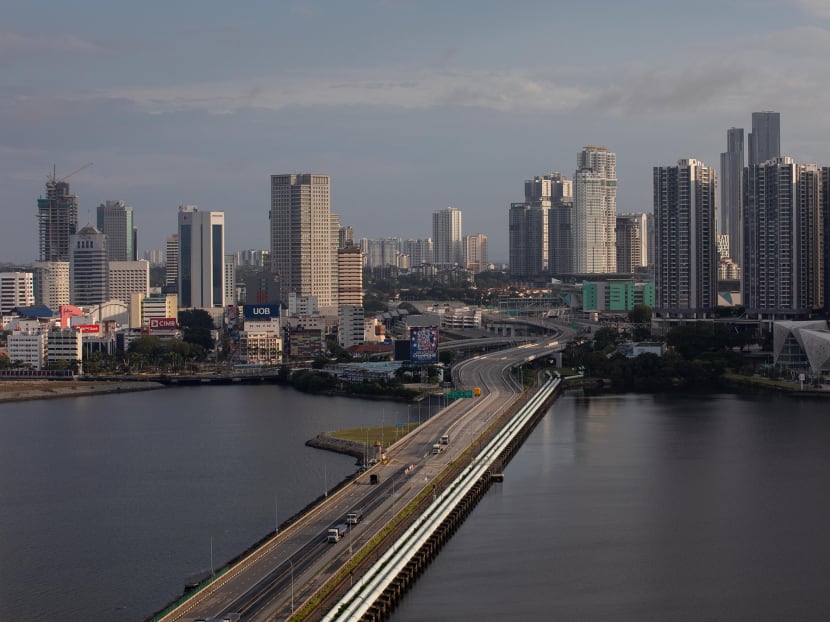
OBSTACLES IN THEIR WAY
While the authorities in both countries have introduced a few special schemes to allow some form of travel, many Malaysian workers in Singapore have not been able to take advantage of them due to the sharp rise in Covid-19 cases every now and then, as well as the costs involved.
For example, the Periodic Commuting Arrangement (PCA) is a travel lane agreed between the two governments which supports companies in Singapore and Malaysia by facilitating the movement of workers, according to Singapore's Immigration and Checkpoints Authority’s SafeTravel website.
Companies which need to bring their employees into Malaysia or Singapore can sponsor an application. Such applications could be made from Aug 10 last year.
Under the PCA, approved travellers or employees are required to remain in their country of employment for at least 90 days before returning to their home country for short-term home leave. Cross-border entry under the PCA is only permitted via land at the Causeway and Second Link.
Under the PCA, Malaysians returning home from Singapore were initially required to serve a seven-day home surveillance order and undergo a Covid-19 test.
Those with Johor residential addresses on their identification cards were permitted to self-isolate at home until they received a negative Covid-19 test result.
Mr Muhammad Ridzuan Md Khisban, a 32-year-old cleaner, was able to return home to Johor in February under the PCA scheme. Before that, he had not gone home since March 17 last year.
He said that back in February, he was only required to self-isolate at home for four days before he received his negative Covid-19 result.
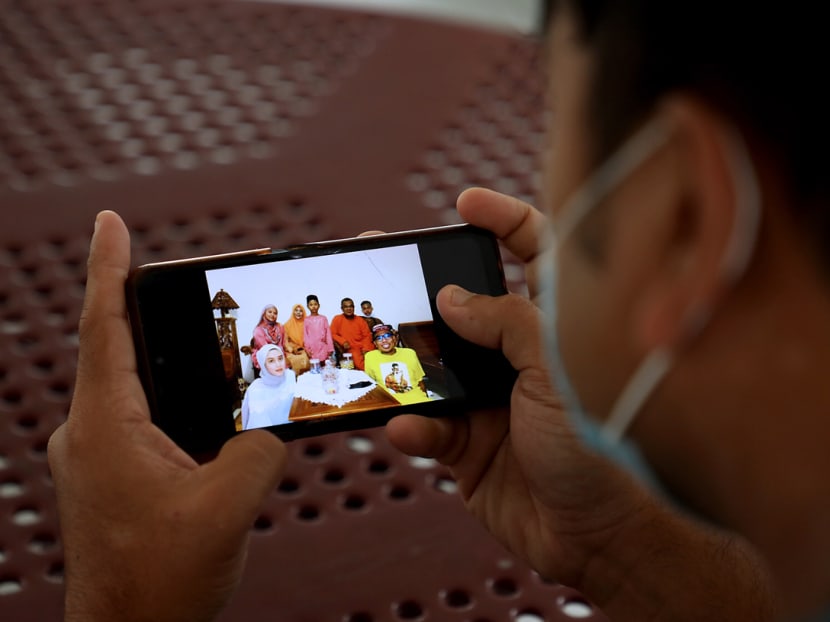
However, since May 13 this year, Malaysia has imposed a strict 14-day quarantine for those entering from Singapore, after the Malaysian authorities listed the Republic as one of several countries that have reported the spread of coronavirus variants in the community.
The 14-day quarantine must be carried out at a government-approved facility.
For those arriving in Singapore, they are required to take a Covid-19 Polymerase Chain Reaction (PCR) test at the checkpoint. They must then serve a 14-day stay-home notice (SHN) at a dedicated facility.
Apart from the PCA, there is also the Reciprocal Green Lane (RGL) which was allowed for short-term travel of up to 14 days.
The RGL — which has also been suspended since May 13 — applies only to essential business or official travellers, and requires a much stricter, controlled itinerary. For instance, these travellers cannot use public transport except for private-hire cars and taxis, unlike those under the PCA.
For many Malaysians in Singapore, the quarantine and SHN requirements constitute the biggest stumbling block to a family reunion.
“I want to go home, even for just a short while but… we have to pay for the quarantine in Malaysia and then again when we re-enter Singapore. It’s really a burden,” said Mr Fariezatul, who earns up to S$1,500 a month including overtime pay.
Quarantine charges in Malaysia start at RM150 (S$48) per day, depending on the chosen designated hotel, totalling about at least RM2,100 for the 14-day period.
The cost of staying in a SHN dedicated facility in Singapore for 14-days is S$2,000 for a single adult for accommodation and food, according to ICA’s SafeTravel website.
Mr Fariezatul, like many Malaysians working here, has already had to grapple with additional living expenses at an exchange rate that is over three times higher, due to his prolonged stay in Singapore.
He is paying S$200 a month in rent for a room in a Housing and Development Board (HDB) flat which he shares with another worker. His company helps him by paying the other half of his rent which totals to S$400.
“I have no choice but to stay here because if I go back, there are no jobs in Malaysia right now,” he said.
“I make just enough to support my family and sustain my life here… I can’t really think about spending so much money just to go home.”
In recent weeks, there have been calls from Malaysians working in Singapore for the Malaysian government to remove quarantine requirements for those who are fully vaccinated.
An online petition asking for such a waiver had garnered 17,500 signatures as at 5pm on Thursday.

PLEAS FOR HELP
Malaysians in Singapore are also turning to their government to address their situation, though they have not had much luck so far.
On Wednesday, a group of seven Malaysians here went to the High Commission of Malaysia to submit a letter asking for the removal of the 14-day quarantine for those who are fully vaccinated.
However, they were prohibited from entering the premises as they did not have a prior appointment. A security guard later told the group that their letter would be passed to the relevant members in the High Commission instead.
TODAY has sent queries to the High Commission.
Ms Shama Veswanathan, 42, was among the group of Malaysians who turned up at the High Commission. She has been working in the security industry here since 2013.
“To us, Singapore is a low-risk country... So why do we need to quarantine for 14 days in a hotel when we enter Malaysia? RM2,100 is not a small amount of money,” she said.
“In Malaysia, there are a lot of political matters at the moment. They’re more concerned about that… And for us in Singapore, it feels like they have forgotten us.”
Political tensions have been rising in Malaysia, with Prime Minister Muhyiddin under pressure after key allies withdrew support for his government.
Ms Shama said allowing for home quarantine or reducing the number of days in a facility will not only lower costs but also allow them to spend more time with their families. “Most workers have only 14 to 21 days annual leave so we don’t need to take unpaid leave when we go back. We really hope that they will see our letter and they will do something about it,” she said.
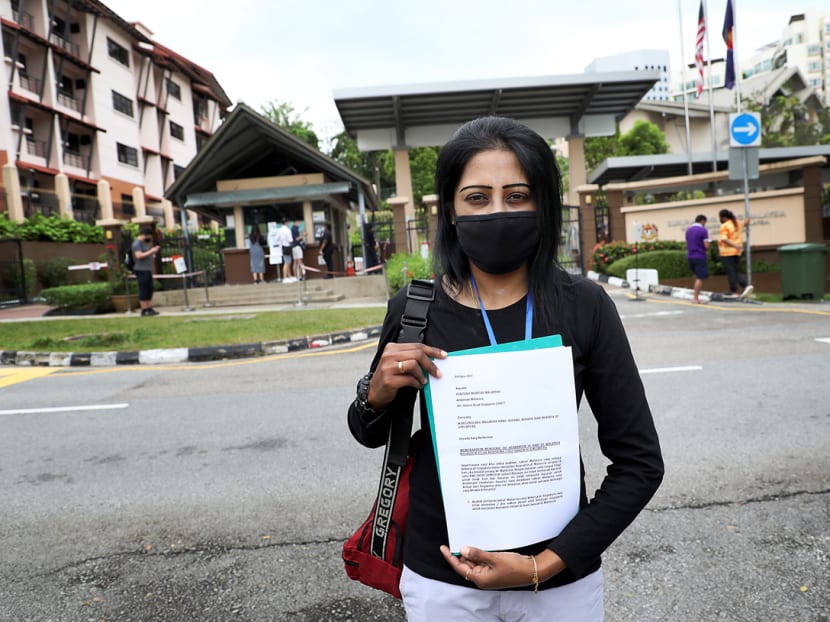
Malaysia-Singapore Workers Task Force president Dayalan Sreebalan, who guided the group in submitting the letter, said he has received many pleas for help from Malaysians working here, including those seeking legal aid because their spouses are having affairs.
He said that many have also reached out due to financial problems and the need to return home due to family emergencies, such as death in the family. He comes across five to 10 death cases daily.
As such, more needs to be done for these families who are being kept apart, Mr Dayalan said.
HELP POUR IN FOR MALAYSIANS
While they are hoping for the authorities to improve their plight, several Malaysians here told TODAY that they are appreciative of what some individuals and firms in Singapore have been doing for them.
Mr Fariezatul, for example, said that many Singaporeans have rallied around him, and have become almost like “adoptive parents”.
One of them is retiree Mohd Razib Ibrahim, 56, who has been distributing packets of food to Malaysian workers here since March 18. Currently, he works with charity Willing Hearts to provide over 1,100 packets of food to these workers for dinner daily.
“Other than dinner we also provide them with groceries, toiletries and prayer garb, anything that they can use,” said Mr Razib, adding that the items collected are donations from his friends.
Since March last year, real estate firm Cushman & Wakefield's facilities and engineering arm, C&W Services, has been paying for the accomodation of 150 of its Malaysian workers. It also provides them with a monthly living allowance to help them manage Singapore’s higher cost of living, said C&W Services managing director Natalie Craig.
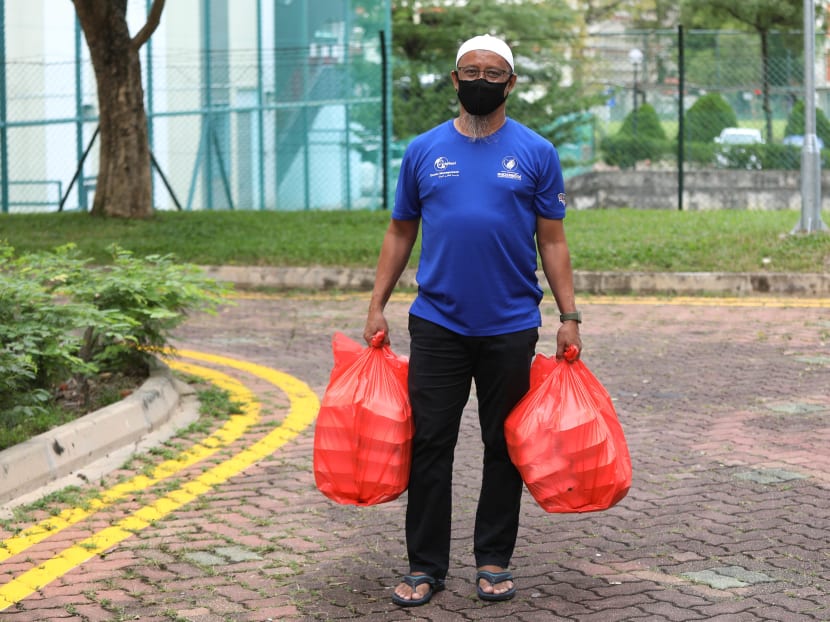
LIGHT AT THE END OF THE TUNNEL SOON?
Mr Lim, the Malaysian biomedical engineer, said that despite having a stable job in Singapore, he is thinking of quitting to return home to his family if the situation doesn’t change by next month.
He noted that many of his compatriots working in Singapore are similarly looking forward to Singapore’s plans to ease border restrictions next month, particularly for vaccinated travellers.
Mr Lim said: “If it doesn’t open up by then (September), then we have a rough idea that it will never open up again forever so I will proceed to resign.”

